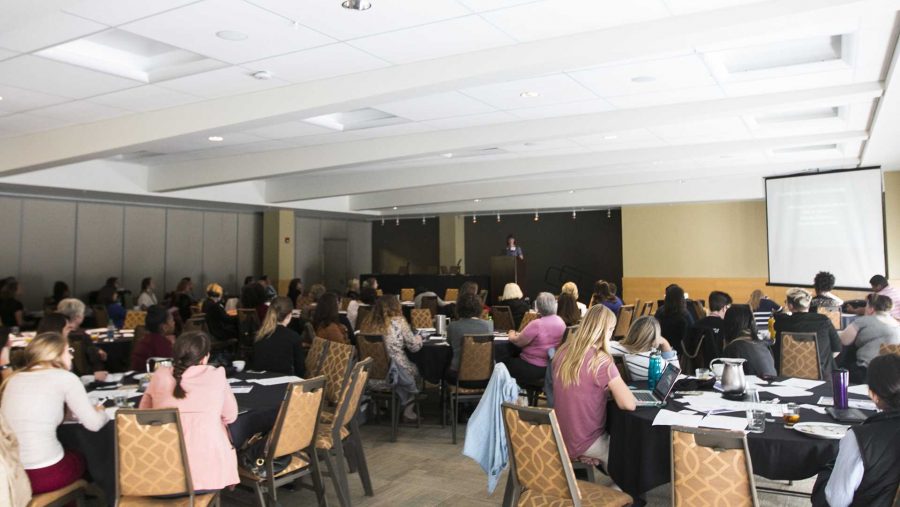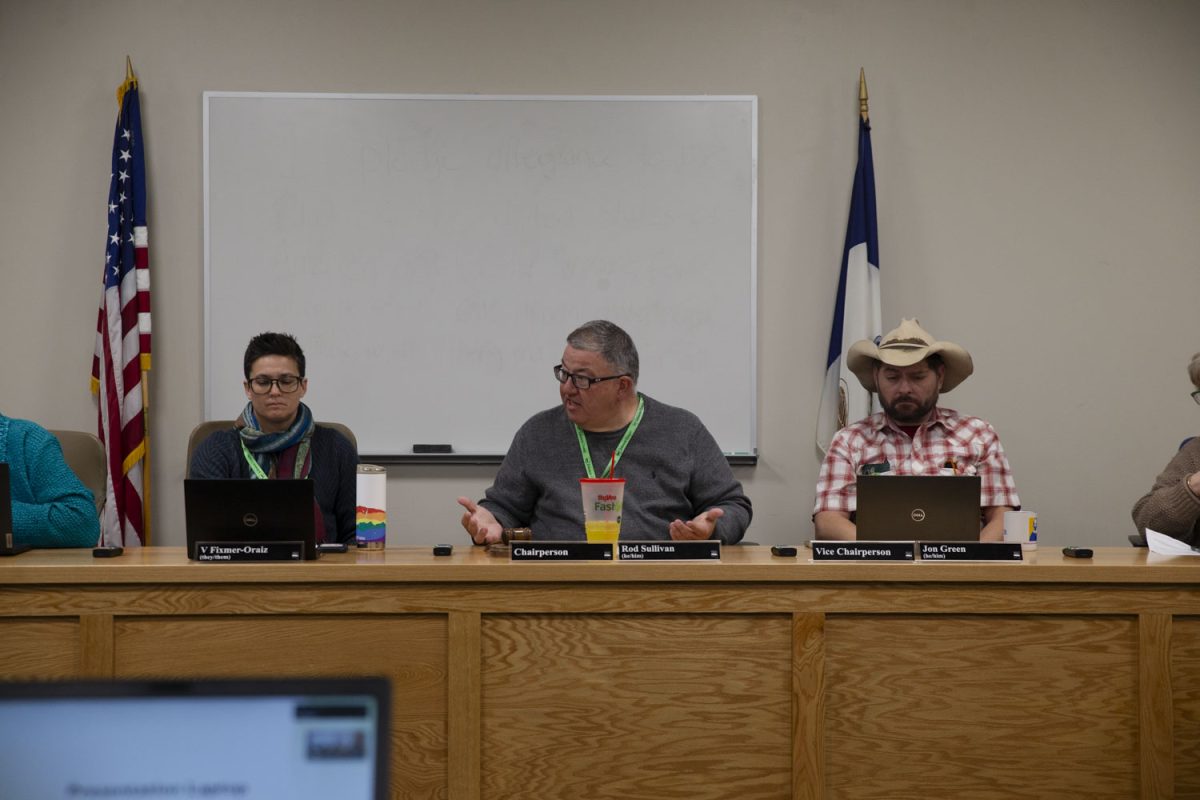In recognition of Domestic Violence Awareness Month, the Public Policy Center hosted a daylong conference on gendered violence to discuss domestic-violence policies from a local to an international level, with a focus on the recent changes in Iowa’s policies.
Tracy Osborn, a University of Iowa associate professor of political science, is the director of the Public Policy Center’s Politics and Policy section and the organizer of the conference.
“I served on the Domestic Violence Intervention Program’s board for several years, and during that time the state went through a policy transition and changed the way they fund shelters for domestic-violence victims,” Osborn said. “I found the transition interesting and wanted to highlight what the key problem are for policy attention and offer that information to the public.”
RELATED: Locals get new domestic abuse tool
DVIP Director Kristie Doser, who served as a panelist at the conference, focused on how domestic-violence services have been chipped away since she joined DVIP in 1986.
“In 1986, there were 37 domestic-violence and sexual-assault programs in Iowa, and as of now there are 18,” Doser said. “The domestic-violence shelters in the state were also cut from 26 to eight.”
DVIP serves eight counties in southeastern Iowa. Doser said DVIP serves between 300 and 350 men, women, and children in the emergency shelters every year. The lower number of shelters coupled with Iowa City’s affordable-housing crisis creates even more danger in the area of domestic violence.
“We are in a space, particularly in Johnson County, where getting housing is difficult, especially if you have struggled economically,” Doser said. “If you add in the barriers domestic violence brings, many of the victims don’t have the resources or the physical options to leave the violent household, so they are forced to go back. It literally puts them in danger.”
RELATED: Anti-assault groups gear up
The state of Iowa has also cut victim services funding by 26 percent this past year, Doser said. This jeopardizes federal funding due to what is called “match dollars,” in which federal organizations require a certain amount of their donations be met by state and local funds before they will award a grant.
“The question for me is, if you are not willing to take care of victims of violent crime, what does that say about you as a state?” Doser said.
The conference’s keynote speaker, Sarah Super, founded a platform called Break the Silence in which victims of sexual violence can publicly share their stories to end rape culture and hold perpetrators accountable. Super said she was inspired to create this platform following her own experience with sexual assault in 2015, in which she was raped by an ex-boyfriend.







